
Key Takeaways:
- Stanford University and Clayton State University are two top schools for a master’s in healthcare degree.
- A master’s degree in health sciences prepares graduates for a wide range of positions such as public health educators, clinical laboratory technicians, and healthcare managers.
- The healthcare industry is expanding rapidly, with job growth predicted to increase by 12% from 2022 to 2032, which is faster than most professions.
The best healthcare master’s degrees are a flexible path for working professionals to qualify for higher-paying positions in the health field.
The Healthcare industry is big business in the United States and other developed countries. This enormous employer requires physicians, nurses, and many other professionals. Over 16 million Americans work in the healthcare industry and that number continues to grow.
What is the best master’s degree to get in healthcare? A health science master’s prepares graduates to enter the field in positions such as public health educators, management, clinical laboratory technicians, athletic trainers, dieticians, and many more. The Bureau of Labor Statistics (BLS) estimates job growth in healthcare will increase by 12% between 2022 and 2032, which is faster than most professions.
Our Method: Ranking the 25 Best Health Science Master’s Degrees
To rank the 25 Best Health Science Master’s Degrees, Best Health Degrees editors researched accredited, trusted programs of all kinds. From our initial pool, we ranked programs according to price, accreditation, reputation, and salary potential. We used data from IPEDS and Niche, U.S. News and World Report, and other higher education rating publications.

1. Stanford University
California’s prestigious Stanford University provides a Biomedical Informatics Training (BMI) Program which results in an MS degree. This program combines various fields including, computer science, and quantitive and statistical disciplines, to address issues in medicine and biology.
Depending on your interests, you can choose from one of three health science master’s degree options in academic research, a distance education option for part-time students, and a co-terminal degree (BS/MS) specifically for Stanford undergraduates. Core coursework will involve core BMI studies; and, you’ll take required courses in legal, social, and ethical issues, and unrestricted electives.
The length of study depends on your academic plan, but degree completion requires 45 credit hours. Depending on your academic track, students can earn the degree in one to 3.5 years. Among admission documentation, you’ll need a bachelor’s degree and GRE scores (MCAT for MD). While you do not need a particular undergraduate degree, you will need significant biology, computer sciences, software engineering, and mathematics. Prerequisite math classes include Calculus, Linear Algebra, and also Probability and Statistics.
Fast Fact: Google began as a research project at Stanford in 1996
Degree Awarded: Master of Science in Biomedical Informatics
Learn More: about the health science program for healthcare management!
2. Clayton State University

Established in 1969 in the Greater Atlanta area, Clayton State University has been one of the best regional universities in the South by U.S. News and World Report for two, consecutive years. CSU has a Master of Health Administration degree, requiring 45 credit hours for completion. This program prepares students for leadership and management roles in various health service organizations. Graduates work in managed care assisted living facilities, nursing homes for long-term care, private practice, and also acute care facilities.
The health science master’s program requires a 2-phase, core curriculum, with studies in epidemiology, marketing, law and ethics, healthcare policy, organizational behavior, economics, and finance, among other topics. Electives are in healthcare regulatory issues, long-term care administration, global health issues, or an independent study. You’ll also participate in an internship and must pass a comprehensive exam or complete a thesis. For admission, prospective students should submit official academic transcripts from undergraduate work with a 2.5 GPA minimum. Additionally, other documents required for admission are 3 Letters of Recommendation, a Statement of Purpose, and also a Curriculum Vitae (CV) resume.
Fast Fact: Meets Commission on Accreditation of Healthcare Management Education (CAHME) requirements
Degree Awarded: Master of Health Administration (MHA)
Learn More: about the health science master’s degree in healthcare administration program!
3. Tulane University-New Orleans

Renowned Tulane University, through its School of Public Health and Tropical Medicine, offers the only CAHME-accredited Master of Healthcare Administration program in Louisiana and Mississippi. This program helps students develop leadership skills and prepare for career opportunities in healthcare administration.
If you’re looking for a well-rounded MHA program, this may be the program for you. This degree requires 54 credit hours for completion and includes a year-long residency requirement. You’ll examine issues in public health, applied analytics, organizational leadership behavior, financial management and economics, strategic management skills, and healthcare informatics and systems. At the end of the program, students complete an oral comprehensive exam. Admission requirements are straightforward and include GRE or GMAT scores.
Fast Fact: The 54-credit program is 22 months and reports a 100% graduation rate
Degree Awarded: Master of Health Administration (MHA)
Learn More: about the health science master’s degree in healthcare administration!
4. Columbia University
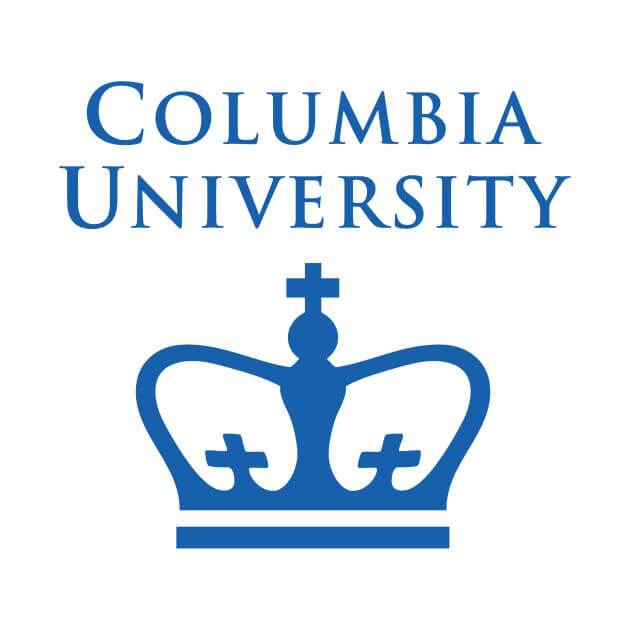
Columbia University’s School of Professional Studies provides a non-traditional and innovative program in MS in Narrative Medicine. This unique interdisciplinary degree combines active listening with observation to better understand a patient’s clinical presentation.
Narrative medicine goes a step beyond simple medical histories and explores patients’ experiences that extend beyond symptoms. The 38-credit hour health science master’s curriculum takes one year for full-time students to complete. The program requires narrative medicine core courses and research methodology. Courses include Giving and Receiving Accounts of Self, Methods in Narrative Medicine, Applied Writing in Narrative Medicine, and also Narrative Ethics. Students with the Columbia Narrative Medicine Certificate of Professional Achievement (CPA) graduate certificate may receive some credit toward the MS.
A capstone project and independent study are also part of the curriculum. This master’s degree program is for healthcare professionals, writers, and scholars, with an interest in improving patient outcomes. You’ll need an undergraduate degree to apply, official academic transcripts, and “evidence of promise.” This last requirement could include the submission of examples of your writing (published or non-published fiction, non-fiction, poetry), scholarly paper, or creative media portfolio.
Fast Fact: Columbia University has accreditation from The Middle States Association of Colleges and Schools (MSACS)
Degree Awarded: Master of Science in Narrative Medicine
Learn More: about the health science master’s degree in healthcare administration!
5. Stony Brook University

Just about two hours outside of NYC, Stony Brook University ranks in Forbes Magazine’s “America’s Best Value Colleges” and in the top 50 of U.S. News and World Report’s “Public Universities.” Through its School of Health Technology and Management, awards an MS in Applied Health Informatics (MS/AHI) degree after 52 credit hours of study. This program has three specializations of study.
- Clinical Systems Lifecycle Management Specialization
- Knowledge Management and Leadership Specialization
- Data Analytics Specialization
Offered on the Southampton campus, you can complete this Stony Brook health science major in about 15 months. Faculty and experts in healthcare information technology designed the curriculum. You’ll study core topics in health information systems, healthcare delivery systems, leadership, and also specialty courses. You’ll participate in specialization practicums and a Quality Improvement Project during the spring and summer.
Fast Fact: More than 26,000 students attend Stony Brook University
Degree Awarded: Master of Science degree in Applied Health Informatics (MS/AHI)
Learn More: about the health science master’s degree in healthcare administration!
6. University of Utah

If you want a public health education degree, you may want to review the University of Utah’s Master of Public Health (MPH) or Master of Science in Public Health programs. This program prepares graduates for management positions in healthcare organizations. Accredited by the Council on Education for Public Health (CEPH), you can finish this 51-credit degree in two years. Additionally, the program has different tracks or areas of emphasis.
- Healthcare Data Analytics
- Leadership/Fellowship
- Long-Term Care
All programs cover the major areas of public health education, with courses in epidemiology, biostatistics, environmental health, behavioral and social health, and administration. Additionally, the tracks require a prerequisite in college algebra for admission. Also, you’ll need a bachelor’s degree with a minimum 3.0 GPA and official transcripts. The GRE is not a requirement but is recommended.
Fast Fact: Brigham Young started the University of Utah in 1847.
Degree Awarded: Master of Public Health (MPH) or Master of Science in Public Health (MSPH)
Learn More: about the health science master’s degree in healthcare administration!
7. Fresno State University

This master’s in Food and Nutrition Sciences will give you a foundation to specialize in a wide range of nutrition and food careers. The program enhances your abilities to work in food research, education, food systems leadership, medical nutrition therapy, and more.
You can complete this degree in 30 credit hours. This curriculum includes a thesis along with didactic coursework in Research Methods in Food and Nutrition, Food, Nutrition, and Health, Statistics, graduate seminars, and electives. The program requires prerequisites typically found in undergraduate food science majors. Over 25,000 students are enrolled at Fresno State University and it is ranked #101 in U.S. News and World Report’s “Top Public Schools” and a “Best Colleges for Your Money” by Money Magazine. FSU is part of the California State University system and was founded in 1911.
Fast Fact: Fresno State is accredited by WASC Senior College and University Commission (WSCUC)
Degree Awarded: MS in Food and Nutritional Sciences
Learn More: about the health science master’s degree in healthcare administration!
8. Duke University

It’s hard to find a more reputable university than Duke. Since 1930, the School of Medicine has been renowned for its contributions to research in medicine and health sciences. The Master of Science in Population Health Sciences degree continues that tradition. This program prepares students for healthcare management leadership positions in various health professions.
The study of Population Health joins healthcare systems and communities in the prevention and treatment of illness and disease. This 30-credit-hour MS covers seven steps which include foundational courses, applied analytics, research methods, professional seminars, electives, a capstone project, and academic integrity.
If you’re not interested in research, your capstone project will involve a year-long internship with Duke Health or other health agencies. A master’s paper on your internship experience is required.
Fast Fact: Duke opened the Department of Population Health in 2017.
Degree Awarded: MS
Learn More: about the health science master’s degree in healthcare administration!
9. Canisius College
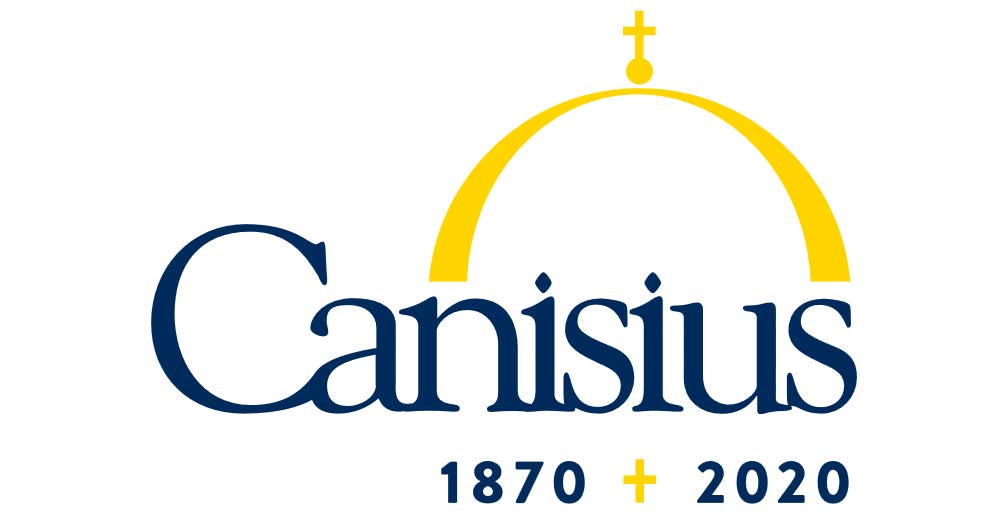
Canisius College, Buffalo, NY, has a hybrid MS in Health and Human Performance which is designed for allied health professionals. This MS degree has a 34 to 35-credit-hour curriculum, depending on the concentration chosen: Cardiac Rehabilitation, Health Promotion, or Strength and Conditioning.
This program will prepare you for an advanced, terminal degree such as a physical therapist or physician. The core curriculum explores epidemiology, nutrition, exercise testing, research methods, as well as data analysis and statistics. Each concentration includes 9-10 credit hours of study in the specialty. Regardless of the specialty chosen, the degree requires 6-credit hours of a thesis or internship.
Fast Fact: Canisius College was founded in 1870 by German Jesuits
Degree Awarded: MS
Learn More: Learn more about the health science master’s degree in healthcare administration!
10. San Diego State University

San Diego State University offers you a choice between a Master of Public Health (MPH) or a Master of Science in Public Health (MSPH) with a concentration in Environmental Health. The two degrees are distinct in their objectives. If you want to be an environmental or occupational health practitioner, the MPH degree will get you to your goal.
The MSPH is best if you want to work in the more technical and research aspects of environmental health. Both degrees can be completed in two years and share core public health coursework and field experiences. The MSPH requires a thesis while MPH students can choose between a thesis or directed readings.
Fast Fact: SDSU is a U.S. News and World Report “Best Value School” and “Best Colleges for Veterans”
Degree Awarded: MSPH or MPH
Learn More: about the health science master’s degree in healthcare administration!
11. Johns Hopkins University
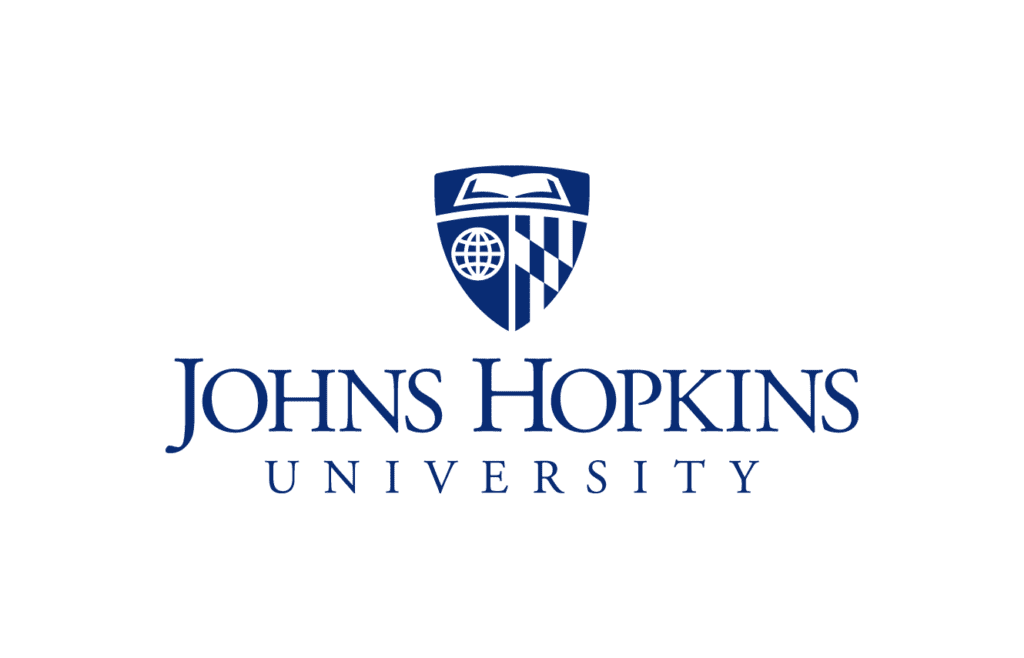
Located in Baltimore, MD, Johns Hopkins University ranks as one of the country’s premier universities. Its Bloomberg School of Public Health offers a Master of Health Science (MHS) in all its 11 departments.
The range of disciplines includes Biochemistry & Molecular Biology, Biostatistics, Environmental Health, Epidemiology, Social Factors in Health, Clinical Investigation, Health Policy and Management, Global Health Economics, Mental Health, Molecular Microbiology and Immunology, Population, Family, and Reproductive Health.
Admission to JHU will require GRE scores, transcripts, etc. and applications are done through SOPHAS. While each department will have specific requirements, in general, MHS programs require a minimum of four terms, attending full-time. You can also expect to complete a thesis or other written and oral presentations.
Fast Fact: Founded in 1876 and is America’s first research university
Degree Awarded: MHS
Learn More: Learn more about the health science master’s degree in healthcare administration!
12. University of North Florida

The CAHME-accredited Master of Health Administration (MHA) program at the University of North Florida’s Brooks College of Health, will prepare you for leadership positions in a variety of healthcare roles. Offered full-time or part-time, studies include leadership and organization, finance and economics, healthcare information technology, Human Resources, and others. The curriculum requires 45 credit hours for completion.
You don’t need a specific undergraduate major to apply, but the college does require college coursework in statistics and principles of financial accounting. Applicants need to submit GRE or GMAT scores, academic transcripts, an application, and other documents. The University of North Florida is located in Jacksonville and has an enrollment of more than 17,000 students. Forbes Magazine rates UNF as one of its “America’s Best Value Colleges 2019” and Money Magazine names the university a “Best Colleges for Your Money 2019.”
Fast Fact: Brooks College of Health has an 82% graduation and a 100% employment rate.
Degree Awarded: MHS
Learn More: about the health science master’s degree in healthcare management!
13. University of Texas at Tyler
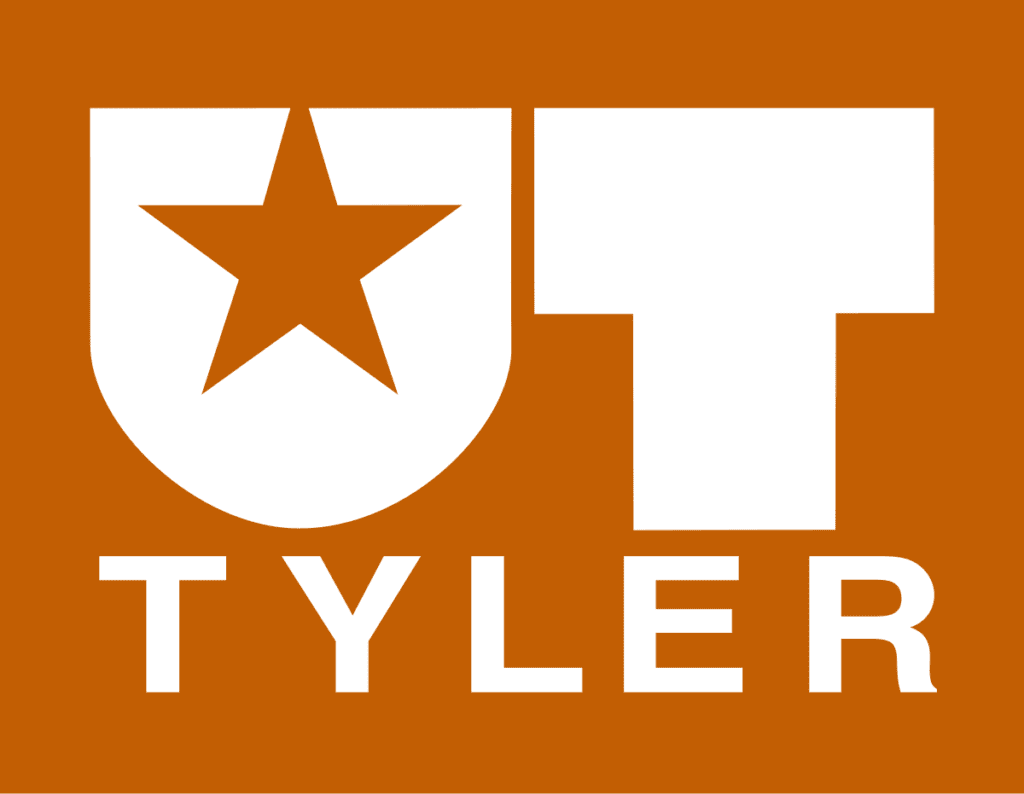
You can choose from five concentrations with the University of Texas at Tyler’s Master of Health Science. The program is offered both in-class or online, through the College of Nursing and Health Sciences and was developed to train healthcare leaders in disease prevention and promoting health.
This curriculum requires 36 credit hours and offers five concentrations in Community Health and Wellness, Health and Behavior, Risk Analysis and Health Promotion, Program Development and Evaluation, or Global Health Issues. Among the core courses for this degree are Studies in Global Health, Research Design, Epidemiology, Biostatistics, and Theories and Models in Health Behavior. You can choose between a thesis or an internship.
Fast Fact: Accredited by the Southern Association of Colleges and Schools, Commission on Colleges (SACS-COC)
Degree Awarded: MSHS
Learn More: about the health science master’s degree in healthcare management!
14. New Jersey City University

This is a 42-credit hour Master in Health Administration (MHA) developed to position you for management in any area of healthcare administration. During the two years of study, you’ll be trained in healthcare informatics, healthcare research, personnel management, epidemiology, healthcare administration and theory, etc.
The program also requires a thesis or department project. Additionally, if you don’t have two years of administrative experience, you’ll be required to complete a residency.NJCU also offers an MS in Public Health and an MS in School Health Education.
Fast Fact: NJCU began in 1927 as a teacher’s college
Degrees Awarded: MSHA, MS
Learn More: about the health science master’s degree in healthcare management!
15. University of Alabama

This university, located in Tuscaloosa, is the flagship school of the University of Alabama system and offers several options for studies in health sciences. The College of Community Health provides graduate studies in MS in Population Health and MS in Rural Community Health degrees.
UA’s College of Human Environmental Sciences has a Master of Arts in Health Studies. All three programs require 30-credit hours and depending on the curriculum, may require a thesis and/or capstone project.
Fast Fact: ranked nationally as a “Best Value School”
Degree Awarded: MS, MA
Learn More: about the health science master’s degree in healthcare management!
16. Florida Agricultural and Mechanical University

You may not be very familiar with Florida Agricultural and Mechanical University, but it ranks #7 in U.S. News and World Report’s “Historically Black Colleges and Universities” and is considered one of the publication’s “Top Public Schools.”
The School of Allied Health Sciences has an MS in Healthcare Administration (MSHA) degree which requires 55 credit hours, including didactic coursework and field experiences. The goal of the program is to prepare you for entry-level, healthcare administrative positions. Among the topics, you’ll cover are research methods, finance, economics, organizational theory, as well as a capstone project. The program makes use of simulations, class presentations, group activities, and case analyses. You’ll also improve your communication and interpersonal skills.
Fast Fact: Founded in 1887, FAMU is accredited by the Southern Association of Colleges and Schools Commission on Colleges (SACSCOC)
Degree Awarded: MSHA
Learn More: about the health science master’s degree in healthcare management!
17. Pennsylvania State University

Better known as PennState, the MS in Clinical Research degree through PSU’s College of Medicine will prepare you for a career in healthcare research.
The broad, 30-credit-hour curriculum covers topics in clinical trials, ethics, biostatistics, scientific communication, epidemiology, and so on. As part of the health science master’s program, you’ll complete a mentored research thesis on the topic of your choice. The thesis will be developed, conducted and analyzed, and summarized during your two years of attendance.
Besides a university application, you need an undergraduate degree with a minimum 3.0 GPA, academic transcripts for all universities or colleges attended, GRE, MCAT, LSAT, or GMAT scores, as well as a resume and letters of recommendation.
Fast Fact: The College of Medicine was established in 1966 with a bequest from the M.S. Hershey Foundation (of Hershey chocolate fame)
Degree Awarded: MS
Learn More: Learn more about the health science master’s degree in healthcare management!
18. Barry University

You can earn Barry University’s Master of Science in Health Services Administration (MS/HSA) or you can earn a dual MS/HSA-MPH) degree. The MS/HSA degree requires 51 credit hours of study in such studies as health care policy, health law and ethics, epidemiology, budget, finance, biostatistics, and more. You’ll also be required to complete a practicum experience in your choice of specialty. You can earn the degree in approximately two years.
The MS/HSA-MPH degree covers much of the same subject matter with the addition of two capstone projects in special topics and healthcare strategic planning. The dual degree requires 60 credit hours for completion. The Health Management Program at Barry University is an Associate Graduate Member of the Association of University Programs in Health Administration (AUPHA).
Fast Fact: Established in 1940 in Miami Shores, FL
Degree Awarded: MS/HSA or MS/HSA-MPH
Learn More: about the health science master of health administration!
19. Lipscomb University

Located in “Music City”, Nashville, TN, Lipscomb University is a private, Christian college that offers an MS in Healthcare Informatics (MSHI). The curriculum requires 42 credit hours of interdisciplinary studies ranging from business management courses to health sciences, and health information technology. Additionally, working with a faculty member, you’ll complete a capstone project.
An added benefit is you’ll be able to earn the important Certificate in Health Care Informatics within the first 15 hours of the curriculum. Admission eligibility requires you to hold either a master’s or doctorate, a bachelor’s degree with five years of related work experience, or a baccalaureate degree along with GRE scores. You’ll also need to demonstrate coursework in medical terminology, computer literacy, and statistics.
Fast Fact: Lipscomb University was on Kiplinger’s list of the 400 Best College Values
Degree Awarded: Master of Science in Health Care Informatics (MSHI)
Learn More: about the health science master of health administration!
20. Trine University
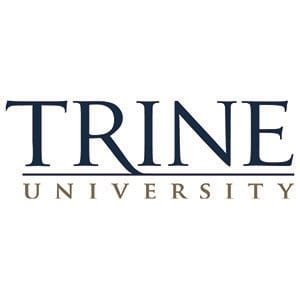
With the growing shortage of physicians, physician assistants are playing an increased, and important, role in patient care. Indiana’s Trine University provides a Physician Assistant (PA) master’s degree.
The didactic portion of the health science master’s program includes advanced subjects in genetics, anatomy, physiology, pharmacology, imaging, evidence-based practice, etc. The clinical year will include rotations in, among others, Family Medicine, Pediatrics, Behavioral Health, and Emergency Medicine. Among elective rotations from which to choose are Gastroenterology, Cardiology, Hematology, and Plastic Surgery. The Trine University PA program prerequisites include organic chemistry, human anatomy, human physiology, statistics, biochemistry, microbiology, and psychology.
Trine University has been granted provisional accreditation status from the Accreditation Review Commission on Education for the Physician Assistant (ARC-PA). Provisional accreditation is designated for programs that have not yet enrolled students; but appear, if fully implemented, will meet ARC-PA standards.
Fast Fact: Princeton Review names Trine University one of its Best Midwestern schools
Degree Awarded: Master of Physician Assistant Studies (MPAS)
Learn More: about the health science master of health administration!
21. Dartmouth College
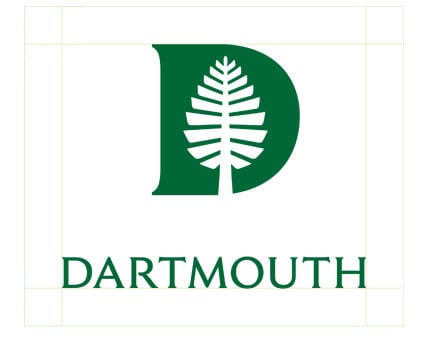
Ranking in U.S. News and World Report’s “Most Innovative Schools” and in the top 10 “Best Value Schools” and “Best Colleges for Veterans,” this well-known Ivy League school offers a Master of Health Care Delivery Science (MHCDS) degree.
This 18-month degree is specially developed for healthcare and insurance executives, industry leaders in pharmaceuticals, IT, health law, policymakers, and physicians preparing to lead their healthcare organizations. Not to be confused with a healthcare MBA or MPH, the MHCDS curriculum was developed to improve your skills to become a highly valued healthcare leader. The program combines the best of MBA and MPH to approach healthcare delivery.
You’ll be taught by quality faculty drawn from Dartmouth’s Tuck School of Business and the Geisel School of Medicine. The core curriculum covers issues in healthcare operations, management and leadership, population health, and preventive care, as well as others. You’ll also work in teams at the end of your coursework on a capstone project.
Fast Fact: Established in 1797, The Geisel School of Medicine is one of the nation’s oldest medical school
Degree Awarded: Master of Health Care Delivery Science (MHCDS)
Learn More: about the health science master of health administration!
22. Cornell University

An Ivy League school, Cornell University is highly respected as an innovative research institution providing the best in education. Through the university’s Graduate School of Medical Sciences, Weill Cornell Medicine offers a Master of Science in Health Sciences for Physician Assistants (MSHS PA) degree.
Requiring 26 months for completion, this ARC-PA-accredited health science master’s program is offered in two phases: didactic coursework and clinical experiences. Advanced studies in anatomy, epidemiology, biochemistry, pathology, etc. are among the courses you’ll take. Among your clinical experiences are placements in Emergency Medicine, Psychiatry, OB/GYN, and also Primary Care.
Upon successful completion, you’ll be eligible to sit for the National Certifying Board Examination administered by the National Commission on Certification of Physician Assistants (NCCPA) exam.
Fast Fact: This program has a 97% first-time pass rate for the Physician Assistant National Certifying Examination (PANCE)
Degree Awarded: Master of Science in Health Sciences for Physician Assistants (MSHS PA)
Learn More: about the health science master of health administration!
23. Loma Linda University

If your goal is to improve your career choices in nutrition science, you may want to look at Loma Linda University’s MS in Nutrition Science program. Provided through the university’s School of Public Health, this health science master’s degree will help move you into positions in the food service industry, government agencies, or in colleges and universities.
Your time commitment for this 48-credit hour degree is between 1-2 years and you have a choice between a research thesis or non-thesis track. Regardless of the track, you’ll be required to complete a comprehensive exam for graduation. Prerequisites are needed in physiology, human nutrition, and generally organic chemistry and microbiology.
The curriculum includes courses in Public Health Fundamentals, Ethical Issues in Public Health, Advanced Nutrition, and also Obesity and Disordered Eating. If you want to become a Registered Dietitian, you’ll want to check out the school’s MPH in Nutrition which is a coordinated program in Dietetics. The School of Public Health holds accreditation from the Council on Education for Public Health (CEPH).
Fast Fact: Loma Linda University is affiliated with the Seventh-Day Adventist organization
Degree Awarded: MPH in Nutrition (Coordinated Program in Dietetics)
Learn More: Learn more about this master of health administration!
24. Des Moines University

Looking for a biomedical graduate program? You may want to consider the Master of Science in Biomedical Sciences at Des Moines University. A 46.5-credit hour and thesis program, you can complete in two years.
Offered through the College of Osteopathic Medicine, you’ll take coursework your first year and concentrate on research and your thesis. Core studies include Biochemistry/Molecular Genetics, Biomedical Research, Research Compliance and Laboratory Safety, and Intro to Biostatistics. Application requirements include a baccalaureate degree in physical or biological sciences, a 2.8 or higher GPA, GRE, MCAT, or DAT scores required, and you’ll want to be sure you have the right prerequisites before applying.
Fast Fact: Founded in 1898 as the Dr. S.S. Still College of Osteopathy
Degree Awarded: MS Biomedical Sciences
Learn More: about the health science master of health administration!
25. University of St. Augustine

The MS in Health Science at the University of St. Augustine gives you choices. You can attend on-campus classes or study completely online. There is an accelerated program if you have relevant experience and also a traditional pathway.
Additionally, you can choose a general degree or from five specializations in Health Informatics, Executive Leadership, Athletic Training, MSH to EdD Bridge Program, or Teaching and Learning. The total 36-hour curriculum shares common coursework in ethics, evidence-based practice, global and regional health, psychosocial strategies, etc. Each concentration area requires 15 credit hours in specialty electives. A comprehensive project is required regardless of specialty area.
Fast Fact: Ranks #57 in U.S. News and World Report’s “Historically Black Colleges and Universities”
Degree Awarded: Master of Health Science (MHS) Online
Learn More: about the health science master of health administration!
Why Should You Get a Health Science Masters?
It’s true there are many healthcare careers you can enter with a bachelor’s degree or associate degree. But, your career options greatly increase with a postgraduate degree. For instance, if you have a desire to work in healthcare administration or management, a Master’s in Healthcare Administration (MHA) degree will give you the knowledge and experience to lead a healthcare organization.
If you want to improve the health in your community, schools, and specific populations, a Master of Public Health (MPH) may be your best option. A Health Science graduate degree will acquaint you with a number of health-related topics. Depending on your interests, you may take courses in clinical and non-clinical topics.
How Do You Choose a Good Master’s in Health Sciences?
There are so many factors to consider in choosing any graduate program that it’s difficult to provide a definitive answer. Certainly, you need to look at such things as tuition, school location, how much time will it take, does it meet your career goals, does your undergraduate degree qualifies you for the program. Let’s look at some of the other benefits that earning a master’s degree may offer. For example, a Master’s in Healthcare Administration is another similar path that has affordable online degrees.
Additionally, an MS in Healthcare Administration (MSHA) is also a good option. For a non-clinical degree, you’ll want to see if the program provides a curriculum that examines topics such as economics, finance, healthcare ethics, organizational behavior and development, Human Resources, healthcare policy and law, management theory, and so on. Many MSHA programs will require internships, giving you first-hand experience in the healthcare administration of an organization.
What is the best Master’s Degree to get in healthcare?
The best master’s degrees in healthcare include the MHA, MHS, MPH, and MBA. Additionally, several MSHA programs are in conjunction with industry leaders, policymakers, and expert faculty. Often, these programs will encourage networking and identifying mentors and advisors who may be available to you even after graduation.
Capstone projects are beneficial since they allow you to take what you’ve learned and apply it to a real-world situation. Some Health Sciences or Health Administration careers will be more clinical and research-oriented in nature. Courses may involve epidemiology, nutrition, biostatistics, biology, health administration, social and behavioral sciences, and also research methodology.
Accreditation for Master’s Programs?
Accreditation is a veritable alphabet soup but is important in any academic program. Colleges and universities hold regional accreditation through Department of Education-approved organizations. These school accreditation such as the Higher Learning Commission (HLC), department programs may require additional accreditation.
Accreditation, in many cases, assures you that you’ll be qualified to sit for certification exams if your career path requires it. In short, verify the health administration program accreditation before you apply.
Program Accreditation for the Best Healthcare Masters Degrees?
Which organization accredits a health sciences degree program will, of course, depend on the degree. For instance, the Commission on Accreditation of Allied Health Education Programs (CAAHEP) is the largest accreditor of specific health sciences degrees. Similar to CAAHEP, The Accrediting Bureau of Health Education Schools (ABHES) also accredits undergraduate and graduate health sciences degree programs.
Other health administration program accreditations you should look for are the Commission on Accreditation of Healthcare Management Education (CAHME) for MS in Healthcare Administration programs, the Council on Education for Public Health (CEPH) reviews Master of Public Health degrees, the National Environmental Health Science & Protection Accreditation Council (EHAC) for environmental health science, the physician assistant programs must hold Accreditation Review Commission on Education for the Physician Assistant (ARC-PA), masters program in nutrition and dietetics should hold Accreditation Council for Education in Nutrition and Dietetics (ACEND) designation.
What Do You Learn in a Healthcare Master’s Program?
Most master’s programs take two years to complete for full-time students. Part-time students in a graduate degree program are often working professionals. They may take three to five years to finish if they continue working while in school. These programs usually include core classes, specialized classes, and a project or internship. Below are some of the classes students complete in an MHA program.
- Financial Management
- Health Information Systems
- Data Analytics and Research Methods
- Health Services Administration
- Managed Care for Health Administration
- Health Policy and Management / Health Policy Analysis
- Public Policy
- Health Economics
- Medical Ethics
- Health Information Management
- Population Health Management
What is the Salary and Job Outlook in Health Administration?
The Bureau of Labor Statistics (BLS) expects 13% job growth in healthcare between 2021 and 2031. Below is information on specific jobs in the healthcare industry.
| Health Services Managers | BLS Quick Facts |
|---|---|
| Median Annual Salary | $101,340 |
| Work Experience | Less than 5 yrs |
| Number of Jobs | 480,700 |
| Job Growth | 28% |
| Employment Change | 136,200 |
| Administrative Services Managers | BLS Quick Facts |
|---|---|
| Median Annual Salary | $99,290 |
| Work Experience | Less than 5 yrs |
| Number of Jobs | 348,100 |
| Job Growth | 7% |
| Employment Change | 23,600 |
| Community Service Managers | BLS Quick Facts |
|---|---|
| Median Annual Salary | $74,000 |
| Work Experience | Less than 5 yrs |
| Number of Jobs | 173,700 |
| Job Growth | 12% |
| Employment Change | 20,400 |
Related :
- Best Online Health Science Master’s Degree
- Fastest Online Health Science Master’s
- Most Affordable Online Health Sciences Master’s
- Top Nutrition Master’s Programs
- Occupational Health and Safety Degree Programs Online
- What are the Best Master of Health Science Jobs?
- Kinesiology and Exercise Science Salary with an Associate Degree